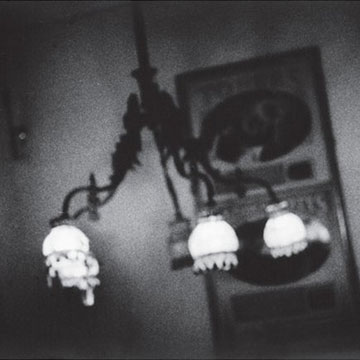#8. Our Endless Numbered Days - Iron and Wine (2004)
Fact about the album
Our Endless Numbered Days is the second Iron & Wine album. Hey, nobody promised these facts would be interesting.
Why it makes the list
I discovered Iron & Wine during my first raid for “similar artists” to Red House Painters. There are websites that will tell you “If you like X then you’ll love Y”. I’ve gone through a lot of Y’s. Some have stuck, others have disappeared. Iron & Wine clearly falls into the former category, thanks in no small part to this delightful album.
While more polished than its predecessor, The Creek Drank the Cradle, it retains the dark charm of Beam’s full debut, and also the simplicity. A couple of guitars and a couple of vocalists make up much of the album. Speaking of the vocals, Sam Beam basically whispers his way through the album, but in a good way.
The songs themselves are the best of their kind. If you like good singer-songwriters, you can’t not like Our Endless Numbered Days. It’s an album that works as background music, but it’s also an album you can cry over as you think about what Beam sings about. Think of it like you’re grandmother. She can either be a pleasant piece of the furniture at a family gathering, or the woman you listen to intently as she tells stories from the good ol’ days.
Memories it evokes
Watching In Good Company at one of Galway City Baptist Church’s famous dvd nights. Two of my favourite tracks from Our Endless Numbered Days feature during the film, which is perhaps why I think it’s not too bad a movie. Well, that and the presence of Scarlett Johansson.
Speaking of Scarlett Johansson, I once read a nice comment on the way she divides opinion: To some, she’s the most beautiful woman in the world; to others, she’s a Pete Burns lookalike.
Favourite tracks
Naked As We Came, Sodom South Georgia, Sunset Soon Forgotten
#7. And Now That I’m In Your Shadow - Damien Jurado (2006)
Fact about the album
Damien Jurado once wrote a song about asking god to kill his schizophrenic brother. This album makes that song sound like something by Hannah Montana.
Why it makes the list
An almost relentlessly downbeat album shouldn’t be this enjoyable, but Jurado pulled off the impossible. There’s barely a drum beat of note, but the guitar/piano/cello combination does more than enough to keep things interesting, as of course do the lyrics.
How much of what Jurado sings is true is akin to wondering how much of Albert Finney’s stories in Big Fish were true. I mean there must be some truth to them, but if everything is factual then surely Damien Jurado would have killed himself by now. Alas, he hasn’t, and he continues to make good music, with his latest offering to come out last year up there with the best of his work.
This album isn’t for the light-hearted, but its deep songs provide a rich source of nourishment if that’s what you’re into. And in ‘Denton, TX’ it contains one of my favourite songs of the noughties.
Memories it evokes
Sitting in a dark, dirty bar with a shot of whiskey in one hand and a revolver in the other, contemplating what I’m gonna’ do ‘bout that no good cheatin’ hussy of a wife who left me for another man.
Favourite songs
Denton TX, Shannon Rhodes, I Had No Intentions
Fact about the album
Our Endless Numbered Days is the second Iron & Wine album. Hey, nobody promised these facts would be interesting.
Why it makes the list
I discovered Iron & Wine during my first raid for “similar artists” to Red House Painters. There are websites that will tell you “If you like X then you’ll love Y”. I’ve gone through a lot of Y’s. Some have stuck, others have disappeared. Iron & Wine clearly falls into the former category, thanks in no small part to this delightful album.
While more polished than its predecessor, The Creek Drank the Cradle, it retains the dark charm of Beam’s full debut, and also the simplicity. A couple of guitars and a couple of vocalists make up much of the album. Speaking of the vocals, Sam Beam basically whispers his way through the album, but in a good way.
The songs themselves are the best of their kind. If you like good singer-songwriters, you can’t not like Our Endless Numbered Days. It’s an album that works as background music, but it’s also an album you can cry over as you think about what Beam sings about. Think of it like you’re grandmother. She can either be a pleasant piece of the furniture at a family gathering, or the woman you listen to intently as she tells stories from the good ol’ days.
Memories it evokes
Watching In Good Company at one of Galway City Baptist Church’s famous dvd nights. Two of my favourite tracks from Our Endless Numbered Days feature during the film, which is perhaps why I think it’s not too bad a movie. Well, that and the presence of Scarlett Johansson.
Speaking of Scarlett Johansson, I once read a nice comment on the way she divides opinion: To some, she’s the most beautiful woman in the world; to others, she’s a Pete Burns lookalike.
Favourite tracks
Naked As We Came, Sodom South Georgia, Sunset Soon Forgotten
#7. And Now That I’m In Your Shadow - Damien Jurado (2006)
Fact about the album
Damien Jurado once wrote a song about asking god to kill his schizophrenic brother. This album makes that song sound like something by Hannah Montana.
Why it makes the list
An almost relentlessly downbeat album shouldn’t be this enjoyable, but Jurado pulled off the impossible. There’s barely a drum beat of note, but the guitar/piano/cello combination does more than enough to keep things interesting, as of course do the lyrics.
How much of what Jurado sings is true is akin to wondering how much of Albert Finney’s stories in Big Fish were true. I mean there must be some truth to them, but if everything is factual then surely Damien Jurado would have killed himself by now. Alas, he hasn’t, and he continues to make good music, with his latest offering to come out last year up there with the best of his work.
This album isn’t for the light-hearted, but its deep songs provide a rich source of nourishment if that’s what you’re into. And in ‘Denton, TX’ it contains one of my favourite songs of the noughties.
Memories it evokes
Sitting in a dark, dirty bar with a shot of whiskey in one hand and a revolver in the other, contemplating what I’m gonna’ do ‘bout that no good cheatin’ hussy of a wife who left me for another man.
Favourite songs
Denton TX, Shannon Rhodes, I Had No Intentions







